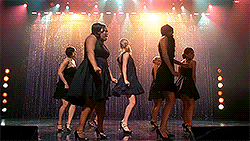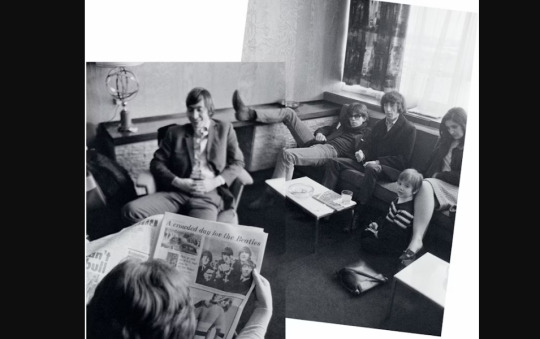#cory jones
Explore tagged Tumblr posts
Text












happy 15 years of glee!
↳ new directions
#glee#new directions#rachel berry#santana lopez#kurt hummel#sam evans#quinn fabray#artie abrams#noah puckerman#mike chang#tina cohen-chang#mercedes jones#brittany s pierce#finn hudson#lea michele#chris colfer#cory monteith#chord overstreet#kevin mchale#jenna ushkowitz#amber riley#harry shum jr#dianna agron#heather morris#naya rivera#gleeedit#glee edit#mine: glee#*#glee15
372 notes
·
View notes
Text

Ballistic (Kim Bass, 1995)
#marjean holden#cory everson#ballistic#vhs#90s#action movie#sam jones#charles napier#richard roundtree#direct to video
88 notes
·
View notes
Text

MHA House, 1947, A Quincy Jones, Jim Charlton
MHA: SITE OFFICE (2019)
Four friends, returning from WWII, pooled their money and bought an acre of land. They hired a pre-Eichler A Quincy Jones, along with Whitney R. Smith, and engineer Edgardo Contin, and built four homes. The group formed the non profit Mutual Housing Association, and through this many more homes were then built in the area, several by renowned mid century architects.
This video takes us on a short tour of MHA's site office and studio, which was converted to a residence in 1956, and more recently restored by architect-owner Cory Buckner. The site was planned so that the houses sat on its corners, at angles to the street and each other, with a central communal pool and play area, which diminishes the sense of internal boundaries, and allows uninterrupted views of the greenery.
#mid century modern#architecture#quincy jones#los angeles#tropical modern#mha house#landscape architecture#cory buckner
282 notes
·
View notes
Text
Jack Jenkins at RNS:
(RNS) — A diverse group of Christians is throwing support behind Vice President Kamala Harris’ White House bid, organizing fundraisers and Zoom calls in hopes of helping catapult the Democrat to victory in November — and, they say, reclaiming their faith from Republicans in the process. Their efforts come on the heels of similar campaigns aimed at specific constituency groups, such as the recent “White Dudes for Harris” Zoom call that featured celebrities and grabbed headlines. John Pavlovitz, a liberal-leaning Christian author and activist, was on that call when he hatched the idea for a Christian-centric version and texted his friend Malynda Hale, a singer, actress and fellow activist. “We had a conversation about how, specifically on the Democratic side of the political spectrum, you don’t hear a lot of people talking about their faith,” Hale told Religion News Service in an interview. “We wanted people to know that there are progressive Christians, there are Christians on the Democratic, left-leaning side, so that they didn’t feel alone.”
The result was Christians for Kamala, a part-fundraiser, part-virtual roundtable livestreamed event on Monday (Aug. 12). Featured speakers cited their faith as they praised liberal policies and personally endorsed Harris — who recently entered the presidential race after President Joe Biden bowed out — and her running mate, Minnesota Gov. Tim Walz. Over the course of the nearly three-hour event, the group raised more than $150,000 for the Harris campaign, a number that has climbed to just shy of $200,000 in the days since. “It’s been really difficult to keep up with the flood of comments and connections that have been coming in,” said Pavlovitz, who said the only formal help he received from the Harris campaign was in setting up a donation system for fundraising. A number of Christian groups — including evangelicals, a constituency key to former President Donald Trump’s base — have assembled similar calls in the lead up to next week’s Democratic National Convention in Chicago. Most have had little to no assistance from the official Harris-Walz campaign, which, barely a month old, has yet to announced a dedicated faith outreach director. The emerging grassroots coalition vies not only to bolster Harris but also to push back on what organizers say is a false assumption that to be Christian is to be a Republican — or a supporter of former President Donald Trump.
[...] That diversity was on display during the Christians for Kamala call, which included a mix of faith leaders such as the Rev. Jacqui Lewis, of Middle Collegiate Church in New York City, and the Rev. Lennox Yearwood Jr., head of the nonprofit Hip Hop Caucus; activists like environmentalist Bill McKibben and LGBTQ+ rights advocate Charlotte Clymer; commentators such as CNN’s Van Jones; and politicians, including New Jersey Sen. Cory Booker and Texas State Rep. James Talarico. The speakers linked their support for specific policies, such as working to blunt the impacts of climate change or passing immigration reform, to their faith and Christian Scripture. Some rebuked conservative Christianity’s ties to the GOP, calling it a form of Christian nationalism. “My faith in Jesus leads me to reject Christian nationalism and commit myself to the project of a multiracial, multicultural democracy where we can all freely love God and fully love our neighbors,” said Talarico, a Presbyterian Church (USA) seminarian who has been vocal in his condemnation of Christian nationalism in his state. “That same faith leads me to support Vice President Harris to be the next president of the United States.”
Although a member of a mainline denomination, Talarico was also a speaker on a separate “Evangelicals for Harris” Zoom call assembled on Wednesday evening. Organized by Faith Voters, a 501(c)4 organization, the effort was geared toward conservative Christians who have disproportionately sided with Trump. The call struck a different tone than Christians for Kamala: some speakers noted they had never endorsed a candidate before, and at least one pastor suggested he was risking friendships and relationships with his congregation by participating.
[...] The calls add to a slate of organizing efforts launched in recent days aimed at specific religious groups. Nearly 500 faith leaders have signed on to a letter endorsing Harris, a “Latter-day Saints for Harris” call was convened last week and multiple separate calls have been organized for Jewish Americans — including one on Thursday that targeted Jewish women and featured singer Barbra Streisand. A separate “Catholics for Kamala” call, facilitated in part by the Harris campaign, was also slated for this week but organizers rescheduled it until after the Democratic National Convention, citing scheduling conflicts. According to Pavlovitz, his group is already partnering with others, such as Catholics for Kamala, Christian Democrats of America and Vote Common Good. What form their collaborations take remains to be seen, but Pavlovitz said he is hopeful for whatever comes next.
Christians fed up with the religious right’s monopolization of what it means to be a Christian rallied to support Kamala Harris on multiple recent calls, such as Christians For Harris and Evangelicals For Harris. Christians need to vote for the REAL Christian in the race, and that’s Harris (and not antichrist Trump). #HarrisWalz2024
#Kamala Harris#Christians For Harris#Evangelicals For Harris#2024 Presidential Election#2024 Elections#Evangelicals#Christianity#Harris Walz 2024#Malynda Hale#John Pavlovitz#James Talarico#Cory Booker#Charlotte Clymer#Rev. Jacqui Lewis#Van Jones#Adam Kinzinger
35 notes
·
View notes
Text




Bildjournalen clippings
#the rolling stones#mick jagger#keith richards#brian jones#charlie watts#bill wyman#60s#60srock#bluesrock#rockband#shirley watts#linda lawrence#linda keith#diane cory#chrissie shrimpton
14 notes
·
View notes
Text
Make a poll with five of your all-time favourite characters, and then tag five people to do the same. See which character is everyone's favourite!
I tag tagged by @professorlehnsherr-almashy and @the-20th-century-girl thank you both so much ❤️
Tagging @mydarlingblitzy @amalthea9 @vincentpriceatemysoul @a4chocolate and @neverswungonswingingstars
#aziraphale#jeremy goode#pauline campbell jones#pat butcher#edward nygma#good omens#psychoville#the league of gentlemen#bbc ghosts#gotham#michael sheen#reece shearsmith#steve pemberton#jim howick#cory michael smith
22 notes
·
View notes
Text

Me when I move house and immediately have to defeat the horrors
#Cory sketch because I’m going out tomorrow!! won’t be back till tomorrow evening#probably won’t really be able to access phone either so… rip have a warmup#my girl!!! my daughter!!!! I care her very much#l beldam because Imagine you’re like this insanely horrifying witch demon horror creature and you immediately get soloed by an eight grader#coraline#coraline 2009#coraline jones
13 notes
·
View notes
Text

#glee#naya rivera#santana lopez#kevin mchale#artie abrams#chris colfer#kurt hummel#amber riley#mercedes jones#jenna ushkowitz#tina cohen chang#harry shum jr#mike chang#cory monteith#finn hudson
54 notes
·
View notes
Text

#jenna ushkowitz#tina cohen chang#cory monteith#finn hudson#lea michele#rachel berry#amber riley#mercedes jones#glee
6 notes
·
View notes
Text
Glee does Barbie Part 2





#chris colfer#kurt hummel#amber riley#mercedes jones#ashley fink#lauren zizes#rachel berry#lea michele#cory monteith#finn hudson#glee cast#glee#barbie
50 notes
·
View notes
Text












happy 15 years of glee!
↳ favorite season three new directions (& troubletones) performances
#glee#rachel berry#kurt hummel#finn hudson#sam evans#artie abrams#tina cohen-chang#mike chang#santana lopez#brittany s pierce#mercedes jones#noah puckerman#quinn fabray#blaine anderson#chris colfer#lea michele#cory monteith#naya rivera#heather morris#kevin mchale#jenna ushkowitz#amber riley#dianna agron#harry shum jr#chord overstreet#darren criss#glee edit#new directions#troubletones#*
169 notes
·
View notes
Text

#Old photo of UFC fighters vouching for Cory Sandhagen to get in the UFC. UFC#MMA#Khabib Nurmagomedov#Conor McGregor#Jon Jones#Israel Adesanya#Wrestling#Brazilian Jiu Jitus#Boxing#Karate#Kickboxing#MMAgifs#MMA news
6 notes
·
View notes
Text


Glee cast
#glee#glee cast#glee edit#lea michele#rachel berry#rachel glee#dianna agron#quinn fabray#tina cohen chang#jenna ushkowitz#kevin mchale#artie abrams#mercedes jones#amber riley#cory monteith#finn hudson#noah puckerman#mark salling#chris colfer#kurt hummel#fox#wallpaper#aesthetic wallpaper#icons#lockscreen
23 notes
·
View notes
Text



Cole Sprouse, Cory Foglemanis and Tommy Dorfman in photoshoot for the SxSW Film Festival.c
#cole sprouse#cory foglemanis#tommy dorfman#I wish you all the best#sxsw film festival#riverdale#jughead#jughead jones#the suite life#five feet apart#moonshot#lisa frankenstein#actor#talented#hot guy#gorgeous guy#one of my faves
7 notes
·
View notes
Text




recent photos I found by Gered Mankowitz , I can't wait to see more by Gered!
#the rolling stones#mick jagger#keith richards#brian jones#charlie watts#bill wyman#rockband#bluesrock#60s#60srock#stephen wyman#diane cory
24 notes
·
View notes

